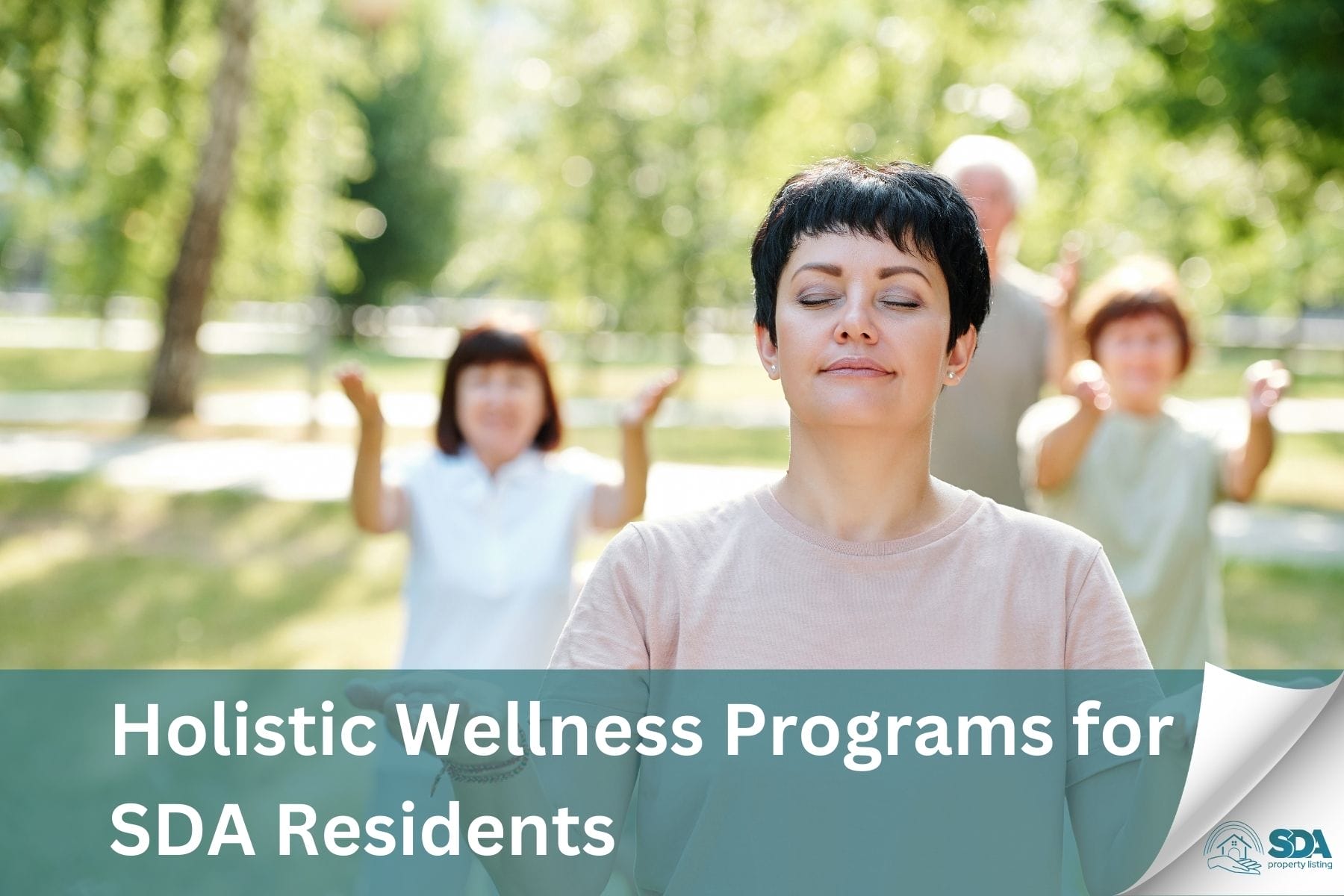
Holistic Wellness Programs for SDA Residents
Specialized Disability Accommodation (SDA) provides more than just a safe and supportive living environment for individuals with significant disabilities. The holistic wellness programs are centric in this aim by the fact that they are responsible for ensuring physical, mental, and emotional fitness. This blog examines the different holistic wellness programs that are available for SDA residents, the role of NDIS, SDA providers and support workers in uplifting the lives of residents.
Understanding Holistic Wellness
Holistic wellness focuses on addressing all aspects of an individual’s well-being, including physical, mental, emotional, and social health.For SDA residents, these programs are crucial in promoting a balanced and fulfilling life as well.
The Importance of Holistic Wellness
- Improved Physical Health: Stay in training by using regular workout sessions to build up your muscles, ligaments and physical health altogether.
- Mental Well-being: Actions or practice of meditation and mindfulness is a kind of stress reliever and a mental well-being.
- Emotional Balance: The counselling as well as the emotional support services are means of developing stronger resilience and superior coping skills.
- Social Connections: Community activities and social events encourage engagement and build a sense of belonging.
Key Components of Holistic Wellness Programs
1. Physical Health and Fitness
- Exercise Classes: These tailored exercise programs are designed to cater to varying abilities and mobility levels, promoting physical fitness, flexibility, and strength.
- Sports and Recreation: Activities such as wheelchair basketball, swimming, and guided nature walks promote social interaction, teamwork, physical fitness, and enjoyment of the outdoors.
- Nutrition and Diet: Kitchens and food journals to promote positive behaviour change regarding nutrition, supporting healthier eating habits, weight management, and overall well-being.
2. Mental Health Support
- Counselling and Therapy: Access to professional counsellors and therapists who specialise in disability and mental health.
- Mindfulness and Meditation: Programs that teach mindfulness techniques to reduce stress and improve emotional resilience.
- Support Groups: Peer support groups where SDA residents can share experiences and offer mutual support.
3. Social and Community Engagement
- Community Events: Organising and participating in local events, cultural festivals, and social gatherings.
- Volunteering Opportunities: Encouraging residents to volunteer in community projects, fostering a sense of purpose and belonging.
- Workshops and Classes: Offering classes in arts, crafts, music, and other hobbies to encourage social interaction and skill development.
4. Personal Development and Education
- Educational Programs: E-learning from specially-designed programs and series of lectures and workshops on vocations of particular interest to SDA residents.
- Skill-Building Activities: the workshops that are practice-oriented and focus on such skills as financial literacy, time management, or communication.
- Goal Setting and Coaching: Individual support to set individual outcome goals and promote resident’s self-efficacy and independence.
Implementing Holistic Wellness Programs
- Assessing Needs and Interests: Begin by evaluating your personal wellness needs and interests to tailor the program to what benefits you most.
- Developing a Comprehensive Plan: Align the wellness program’s objectives with broader organisational goals to ensure cohesive and effective implementation.
- Engaging the Community: Involve community resources and support networks to enhance program offerings and foster a sense of belonging.
- Design Wellness Programme Components: Create specific activities and services that address physical, mental, and emotional well-being based on identified needs.
- Continuous Evaluation and Adaptation: Regularly assess the program’s effectiveness and make necessary adjustments to meet evolving wellness goals.
NDIS Funding and Support
The NDIS also provides funding and resources to help organisations put more emphasis on the provision of holistic wellness programs. This includes financial assistance for fitness activities, mental health, education and related resources, and community events.
Role of SDA Providers
All SDA providers have an integral function in managing and establishing optimum wellness. The duties entail establishment of a family atmosphere within the SDA premises, organising for events as well as making sure that other programs are able to meet all the needs of SDA resident.
Contribution of Support Workers
Support workers are essential in delivering these programs. They provide hands-on assistance, encouragement, and guidance, helping residents to participate fully in wellness activities. Their close relationship with residents enables them to personalise support and adjust programs as needed.Holistic Wellness programs are significant and essential to the well-being of SDA residents for a better quality of life. These programs cater for physical health, mental health, emotional health, and social health for residents to guarantee them balanced and satisfied lives. With the support of the NDIS, SDA providers, and dedicated support workers, SDA residents can access a wide range of wellness activities tailored to their individual needs and preferences.








